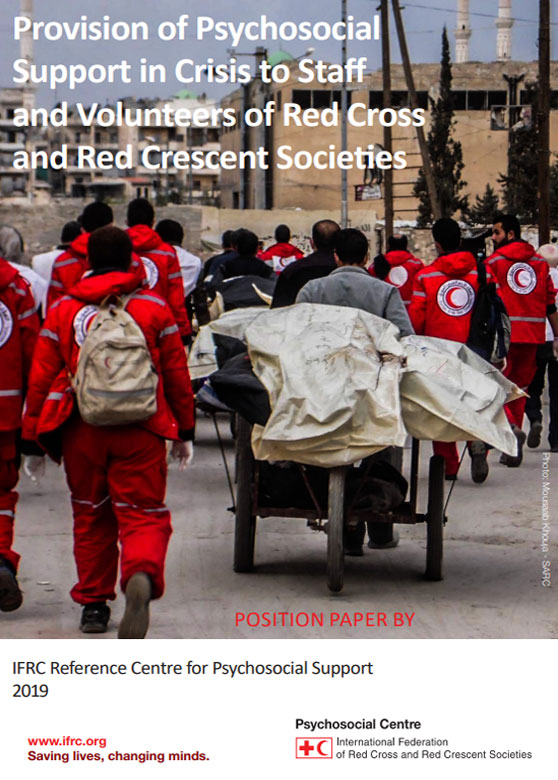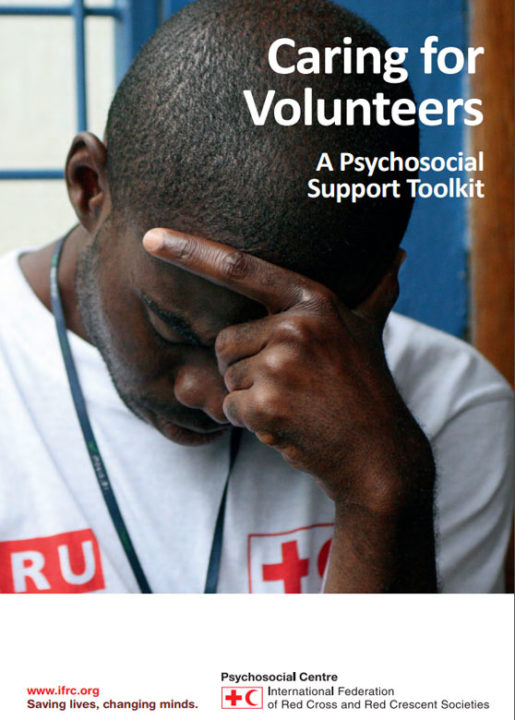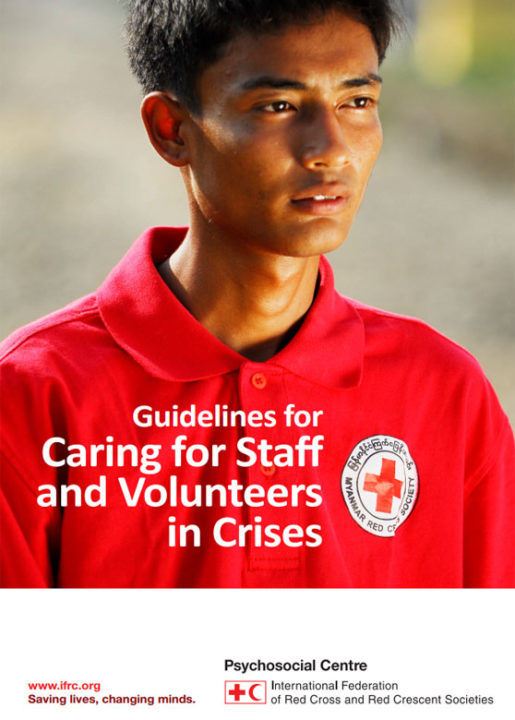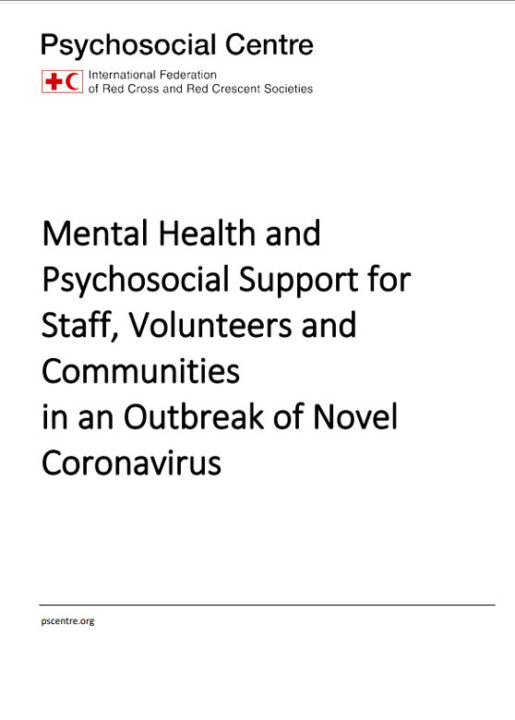Position paper from the IFRC Reference Centre for Psychosocial Support on the Provision of Psychosocial Support in Crisis to Staff and Volunteers of Red Cross and Red Crescent Societies.
The IFRC Reference Centre for Psychosocial Support (IFRC PS Centre) recognizes that it can be difficult to provide effective support to staff and volunteers during and after crisis situations. There is no single method of providing support that will work in all situations. However, simple and cost-effective initiatives and interventions can be put in place before, during and after humanitarian responses to promote the well-being of staff and volunteers and to reduce symptoms of distress and burnout.






